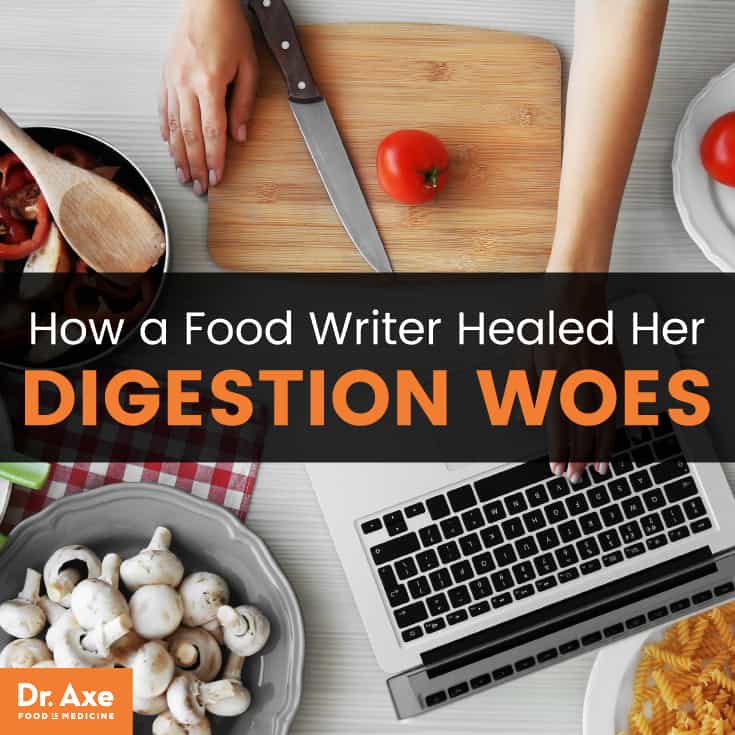Fact Checked
This Dr. Axe content is medically reviewed or fact checked to ensure factually accurate information.
With strict editorial sourcing guidelines, we only link to academic research institutions, reputable media sites and, when research is available, medically peer-reviewed studies. Note that the numbers in parentheses (1, 2, etc.) are clickable links to these studies.
The information in our articles is NOT intended to replace a one-on-one relationship with a qualified health care professional and is not intended as medical advice.
This article is based on scientific evidence, written by experts and fact checked by our trained editorial staff. Note that the numbers in parentheses (1, 2, etc.) are clickable links to medically peer-reviewed studies.
Our team includes licensed nutritionists and dietitians, certified health education specialists, as well as certified strength and conditioning specialists, personal trainers and corrective exercise specialists. Our team aims to be not only thorough with its research, but also objective and unbiased.
The information in our articles is NOT intended to replace a one-on-one relationship with a qualified health care professional and is not intended as medical advice.
December 3, 2017

I had been a professional food writer — as in, it was literally my job to eat my way around the world, reporting on the most delicious foods for magazines — for half a decade, and a bona fide food lover for 25 years before my “iron stomach” began to fail me.
It started with embarrassing digestive issues — namely constipation, bloating and unexplained, out-of-the-blue and completely debilitating nausea.
For nearly five years, I went to doctor after doctor, and from diagnosis to diagnosis (everything from IBS-C to GERD and even a colon cancer scare), and from extreme over-the-counter medications to expensive prescription drugs. I even had a colonoscopy at age 27. Yeah, it was not fun.
And, more than that, none of it worked. And the drugs had equally devastating side effects.
So I decided to go cold turkey on all medication, including hormonal birth control, found a holistic doctor and everything changed.
Ad

I was finally getting to the root cause of my issues (which had compounded since going off the pill with symptoms like weight gain, acne, irregular periods, fatigue and anxiety), instead of just putting a bandage over them and simply treating the symptoms.
And within a matter of weeks, my body finally started to heal. My diagnosis was a doozy (PCOS, insulin resistance, hypothyroidism and leaky gut, to be exact). But prescriptions became completely obsolete.
Instead, I harnessed the power of nutrition and simple, holistic lifestyle changes. And I was blown away by the rapid transformation I saw in my own body.
And all without sacrifice. You see, I still strongly believe that life is not worth living without a few indulgences and delicious meals with family and friends. But I’ve seen firsthand how much the food we eat affects the way we feel, so now I live my life by the 80-20 rule, striking the balance between good and good for you every day.
So how did I do it? How did I reconcile my love of food with my need to heal my digestion troubles and get my life back?
I share all of my tips over on my blog, Root + Revel, but today I’m excited to spill my best natural gut healing hacks with Dr. Axe’s audience (that’s you!). Let’s do this:
1. Eat an anti-inflammatory diet
Healing your gut always starts with food. That means removing any food triggers that cause digestive problems. For example, are you sensitive to gluten? Lactose intolerant? Do you have any food allergies?
But it’s not enough to just eliminate the bad foods. I cannot stress enough how important it is to incorporate the good. Eating an anti-inflammatory diet based in real food is the No. 1 thing I did for my gut health and overall well-being. That means nutrient-dense meals full of plenty of fiber (particularly from leafy greens, vegetables and fermentable starches like sweet potato), which worked wonders on my upset stomach.
2. Drink a green smoothie every day
Since I was majorly upping my intake of veggies, one of the easiest ways I found to get my greens in was by drinking a green smoothie every day. Add flax, hemp hearts or chia seeds to your smoothie for an extra fiber boost — whenever I’m feeling a little “backed up,” this always does the trick.
Likewise, when the weather gets cooler and you don’t feel like a smoothie, swap it for a warm cup of bone broth, one of the most powerful digestive aids that’s incredibly rich in minerals, amino acids (protein) and gelatin (collagen). Digestion-friendly bone broth not only heals the gut, it also reduces inflammation, boosts immunity and is proven to aid in the treatment of autoimmune diseases, infections and even improves mental and emotional health.
3. Optimize your thyroid and hormones
The body is a complex and intertwined machine, and I quickly realized that it wasn’t just my gut that was suffering. My hormones were also totally out of whack, particularly my sex hormones and my underactive thyroid, both of which can cause sluggish bowels.
Though eating an anti-inflammatory diet was helpful, I found that food wasn’t quite enough to keep my digestion regular. So I started taking a natural compounded T3/T4 thyroid replacement hormone and a thyroid-specific multivitamin rich in selenium, zinc and iodine, plus methylated B vitamins, D3, methyl-folate and vitamin A. I’ve been amazed at how much it’s helped improve my digestion and also my overall hormonal balance, anxiety, energy and metabolism as well.
Ad

4. Take safe supplements
Adding a powerful daily probiotic supplement to my regime was one of the fastest ways I was able to restore the good bacteria my gut needs to thrive. I also try to get probiotics from fermented foods, like apple cider vinegar with the mother, kombucha, kimchi, sauerkraut, miso, grass-fed yogurt and kefir. In addition to probiotics, I found a few other natural supplements that helped me heal my gut, including fish oil, collagen supplements and magnesium.
5. Restore stomach acid
Did you know that heartburn and acid reflux is actually caused by a lack of stomach acid, not too much? I know, it sounds counterintuitive, but when you don’t have enough stomach acid to digest your food, the back-flow of partially digested food goes into the esophagus.
Not only is this kind of indigestion incredibly uncomfortable, but if low stomach acid is left unaddressed, the nutrients you do eat won’t be absorbed and thus, they’ll go to waste and lead to inflammation of the GI tract, causing a whole host of worse problems.
Don’t worry: You can naturally increase acid production by taking digestive enzymes and/or hydrochloric acid (HCL) with pepsin with your meals. This will help you fully break down those nutrients you ingest. You can also try taking shots of apple cider vinegar (diluted with just a tablespoon of water) to restore stomach acid and naturally balance the pH level of your stomach.

Read Next: How I Reversed an Autoimmune Disease
